Life in the Regions: Rakhiza Moldokulova – the Daughter of a Wealthy Kazakh Who Fled China Under the Cover of Night and Married a Kyrgyz Man
On the shores of Lake Issyk-Kul, where she was undergoing treatment, Rakhiza met her future husband. She currently lives with her family in the Talas region.
In a conversation with a Turmush correspondent, Moldokulova shared that she was born on March 11, 1950, in Shaueshek (also known as Chuguchak, located in the Xinjiang Uyghur Autonomous Region of China). She began her education in the 1st grade and, at the age of 12, returned to her homeland with those who fled due to the tragic events of 1916, known as the "Urkun." "I remember how a young man on a horse asked who wanted to receive a 'Red Book' to cross into the territory of the USSR. At that time, there was famine in China, and many wanted to leave. We started gathering our things and signing up. On April 12, 1962, the border opened for just one day. My older brother, a military man in China, arrived at the border in a military vehicle to help us cross. My mother died during childbirth, and my father passed away in 1959. My brothers and I were raised by relatives. I was left with my sister in China, but she insisted that I be brought along, otherwise, she refused to cross. At night, we set out on horseback, and suddenly a friend of my brother approached us, which helped avoid delays. That's how we crossed the border," she recounts.
After crossing the border, Moldokulova lost contact with her brother and sister, who remained in China. "We ended up in the Almaty region of the Kazakh SSR. After two years, we found relatives who took us to Semey. My family now lives in the Ayagoz district of East Kazakhstan. When we fled, I was in the 5th grade, and my brothers were in the 8th and 9th grades. In Kazakhstan, we were placed in the 4th grade since we did not know the alphabet. I studied from 4th to 10th grade and enrolled in a pedagogical college to become an 'elementary school teacher.' After college, I continued my studies part-time at the history faculty. In Ayagoz, I became one of the first elementary school teachers and worked at the school for 4 years. After an illness, I was given a voucher for a vacation at Issyk-Kul, where I met my future husband, Birimkul Moldokulov. I never thought I would marry a Kyrgyz man. A month after our meeting, I left, but he found me and came to visit. Despite his illness, I may have fallen in love with him. Without telling my relatives, I left with him by train. My older brother found out about this but couldn't stop me in time. My husband is from Talas, and his father did not return from the front. He was raised in an orphanage because his mother remarried when his father went missing," Rakhiza shares.
In 1974, the couple formalized their relationship and moved to Osh, where they lived in a small room at the foot of Sulaiman-Too. Moldokulova recalls that the conditions were tough: "We had no pillows, no blankets, no dishes, but we did not despair and decided to build everything together." Her husband often went on business trips, and she stayed alone but always looked forward to his return. On May 2, 1975, their first daughter, Botoköz, was born. Soon, they were allocated housing in a barrack, and they were very happy. When her husband fell ill, a doctor named Kambarov helped her find work as an accountant. Later, she went on maternity leave and began working as an educator in a kindergarten, where she worked for 10 years. In 1983, the family moved to Talas, where Rakhiza met her husband's relatives and received their blessing. Her husband insisted on returning to his small homeland, and in 1983 they moved again. Over time, she began working as an educator in a kindergarten and then, starting in 1992, as an elementary school teacher, gradually learning the Kyrgyz language. Eventually, she became the school principal and implemented many of her ideas. Now, according to her, everything is fine, and they are raising their grandchildren. "We worked hard in our youth, and now we are reaping the fruits of our labor," she says.
Rakhiza also shared memories of her parents and relatives who remained in China and her reunion with them after almost 30 years.
"In 1916, my parents fled to China, and my father was Kazakh. He was a well-off man, but soon he was dispossessed, and everything was taken away. After that, he suffered greatly and passed away in 1959. My mother, as I mentioned, died during childbirth. My father did not remarry and left five children in the care of his 'wives' (the wives of his older brothers). We were raised by grandmothers and did not know that the woman who took care of us was not our real mother. We left China in 1962, and contact with our remaining relatives was cut off. In the end, I became part of a Kyrgyz family," she recounted.
Once, while visiting with her daughter, Rakhiza passed a gift from her sister in China. A month after her arrival in Talas, she received a letter from her sister, written in Arabic, which was passed hand to hand. This was the first letter from her sister in 29 years.
On October 19, 1991, along with her husband and children, she went to China with gifts. "When we arrived in the city where my sister lived, I asked everyone not to tell anyone about our arrival. It was an exciting event. The neighbors immediately recognized us and escorted us to her house, but my sister was not there. She was at a wedding, and her son was harvesting. When my sister returned, we hugged and cried. My brother was herding cattle at that time and felt that something was happening. We were given a visa for 2 months, but out of 60 days, we only spent 5 with our relatives. We visited Urumqi, where we met Jusup Mamaev, and this became one of the most pleasant moments of my life. We keep in touch with my brother and sister by phone and dream of meeting again," Rakhiza Moldokulova concluded her story.
Read also:
"Zhubaylar": How a Kazakhstani Woman Khorlan Healed from Illness and Found Her Happiness at Issyk-Kul
In the "Jubailar" section, new heroes are introduced — Khorlan Beksyrgaeva and Moldaly...
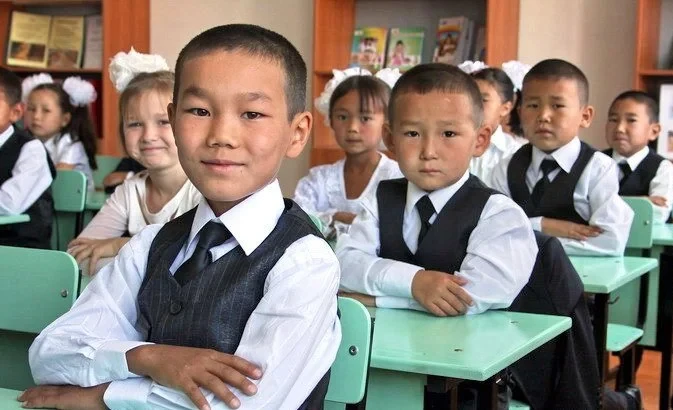
New Generation Educational and Methodological Complexes for "Mathematics" for 1st Grades Delivered to Schools
The Ministry of Education of the Kyrgyz Republic has completed the delivery of modern educational...
Life in the Regions: In Sokuluk, 15-year-old ulakchy Kenenbaeva was entrusted with a horse worth 10 thousand dollars
Shoola Kenenbaeva, 15 years old, lives in the village of Tosh-Bulak (Төш-Булак), located in the...
The first day on the job and immediately a rescue operation for a kidnapped girl — the story of police captain Asel Sulaymankulova
Turmush continues to introduce readers to the work and life of law enforcement officers in...
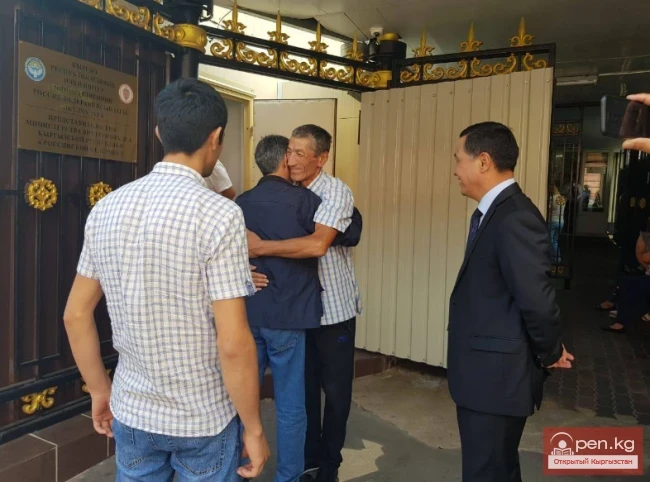
Return to the Homeland after Fourteen Years of Wandering
A citizen of Kyrgyzstan missing for 14 years found in Russia In Samara, a citizen of Kyrgyzstan,...
Young Talents: A Student from Tyup R. Perizhiga is Fluent in Kyrgyz and Conquering Equestrian Sports in Kyrgyzstan
Ruslan Perezhiga, who lives in the village of Tyup in the Issyk-Kul region, speaks Kyrgyz fluently...

Dennis Wolf - a native of Kyrgyzstan
Strangely enough, the athlete Dennis Wolf, competing under the German flag, can be considered a...
"My Grandmother Got Married at 13, Became a Widow at 19, and Lived to 98": The Story of the Head of the Ethno-Folklore Collective, Asiya Zheenchoroeva
Asiya Zheenchoroeva, who currently heads the ethno-folklore ensemble "Asylzat," dreamed...
"Guy Who Defended His Brother Turned Out to Be a Criminal": The Stories of Police Captain Kanat Madylov
The senior police officer of the public safety department of the Panfilov District Internal Affairs...
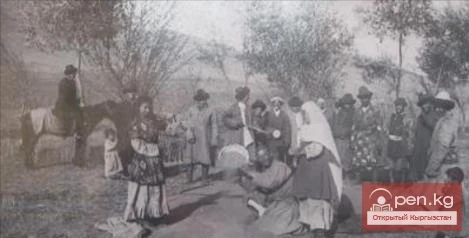
In Kyrgyzstan, a documentary film "Urkun" is being made about the 1916 uprising.
A documentary film titled 'Urkun' about the 1916 uprising is being filmed in Kyrgyzstan....
Life in the Regions: A Resident of the Tyup District, Venera Saadanbekova, Creates Paintings Worth Up to 50,000 Som
Creative Inspiration: Venera Saadanbekova from the Tyup District Creates Unique Paintings. Venera...
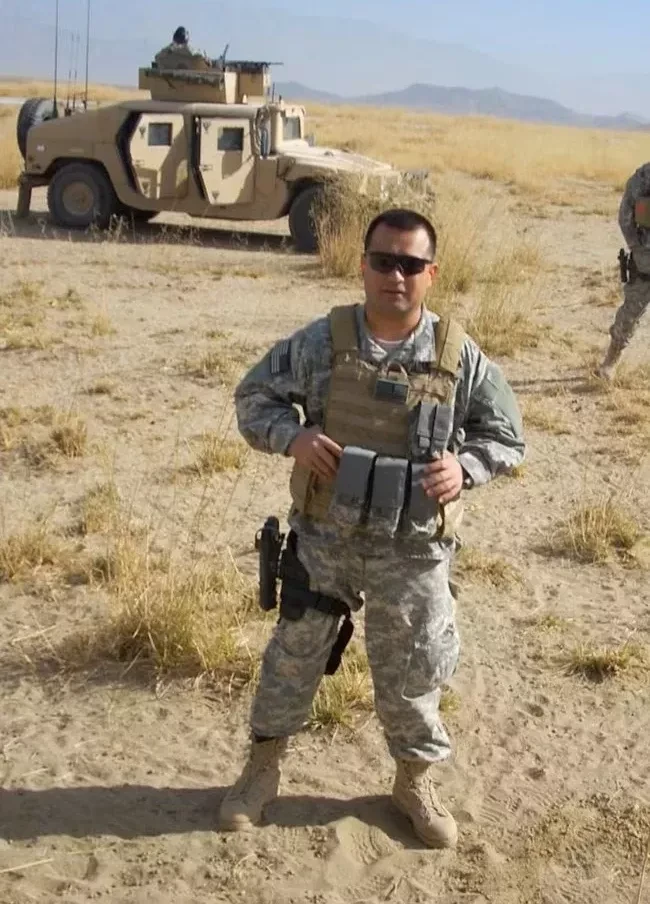
From Samarkand to Kabul: The Story of an Uzbek Who Became an American After Serving in the Army and Now Tries to Return to His Homeland
“Prolonged” trip and letters to Bush Utkur Rahmatullaev has been living in the USA for over 25...
"Our People Abroad": Jumabek Tabaldiev among colleagues with representatives of 70 nationalities from 150 countries
In the section "Our People Abroad," we introduce Kyrgyzstani Jumbek Tabaldiev. He works...
"Metal Object Pierced Husband's Leg and It Had to Be Amputated": The Story of Issyk-Kul Resident Tolkunai Ablabek Kyzy
Tolkunai Ablabek kyzy, a 36-year-old resident of Issyk-Kul, shared the difficult situation her...
Life in the Regions: Kairgul Kozhogulova Raised Two Children Alone While Driving a Milk Truck for 15 Years
Kairgul Kozhogulova, 48 years old, from the village of Kyzyl-Suu in the Jeti-Oguz district of the...
"He didn't know Kyrgyz, and I didn't know Russian": How A. Asanbaeva from Orlovka married a man who lived in Russia for 24 years
Asel Asanbaeva, a teacher at secondary school No. 1 named after G.P. Kudryashov in Orlovka, located...
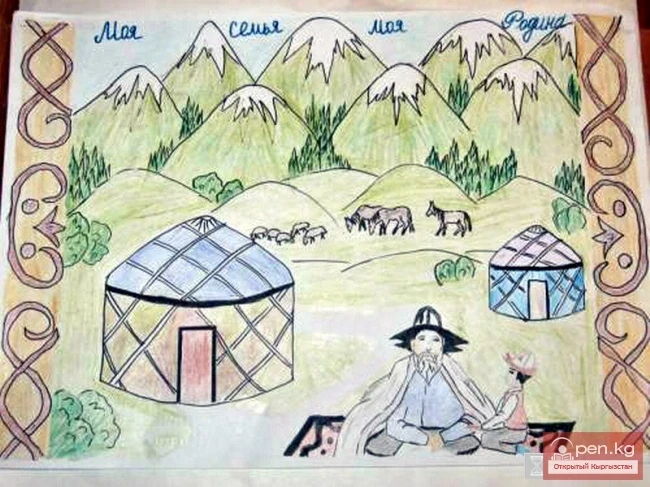
Love your homeland in any weather
How to Achieve Prosperity? In difficult times, a young man decided to help his people. To do this,...
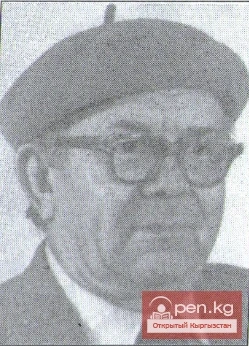
Shafeev Rauf Sagidovich
Shafeiev Rauf Sagidovich Graph. Born on April 15, 1926, in the village of Kulik, Yalutorovsky...
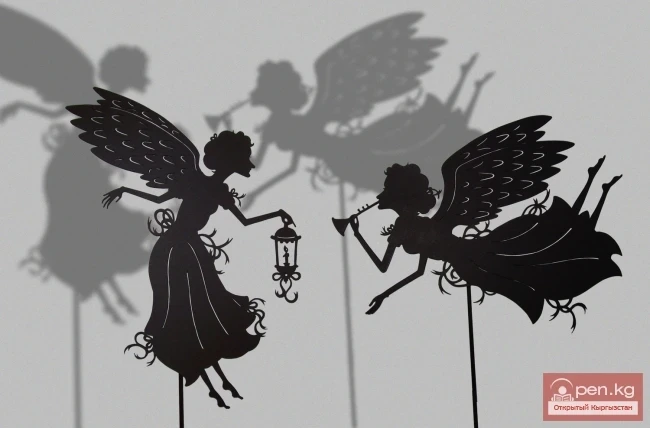
Theater of Shadows
From April 10 to April 30, 2014, the State Historical Museum of the Kyrgyz Republic will host an...
Life in the Regions: Residents of the village of Bakyian in the Talas Region unite to revive traditional crafts
In the Talas region, in the village of Bakyyan, women artisans have united to create unique...

World Nomad Games 2014
From September 8 to 14, 2014, the World Nomad Games will take place in the city of Cholpon-Ata on...
Life in the Regions: Cholpon Turatova seemed to find herself on another planet and wanted to escape, but then began to see the development of a border village with a harsh climate.
Cholpon Turatova, residing in the village of Karkyra in the Tyup district of the Issyk-Kul region,...
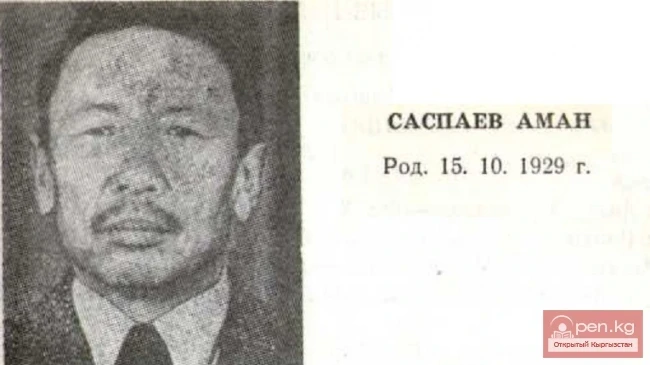
Prose Writer Aman Saspaev
Prose writer A. Saspaev was born in the village of Ken-Suu in the current Tyup district of the...

Three Kyrgyz Seven-Thousanders: Peaks of Victory, Lenin, and Khan Tengri
Three Kyrgyz Seven-Thousanders. 1. Peak Victory - 7439 m. – the highest peak of Kyrgyzstan, the...
In Talas, a drunk driver asked to use the restroom, from which he emerged sober — a police officer recounted what happened
A 35-year-old police captain and senior inspector of the traffic safety group of the Manas District...
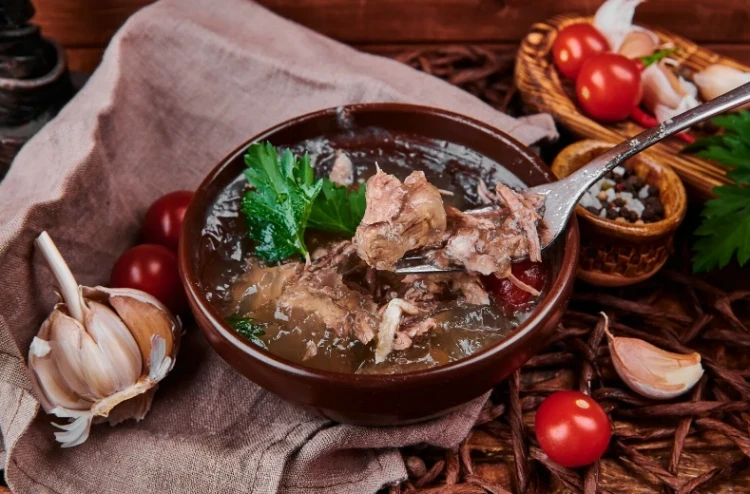
Ozgocho (special)
The recipe for this dish was found among the ethnic Kyrgyz in China (Xinjiang Uygur Autonomous...
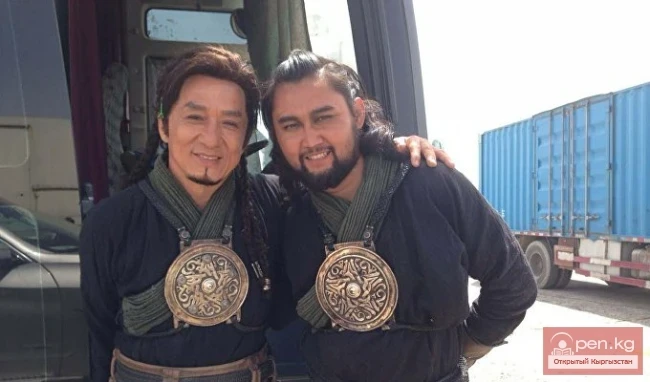
Jackie Chan Asked an Actor to Shout in Kyrgyz While Filming His Movie
The most expensive film in the history of Chinese cinema, "Dragon Blade," was released...
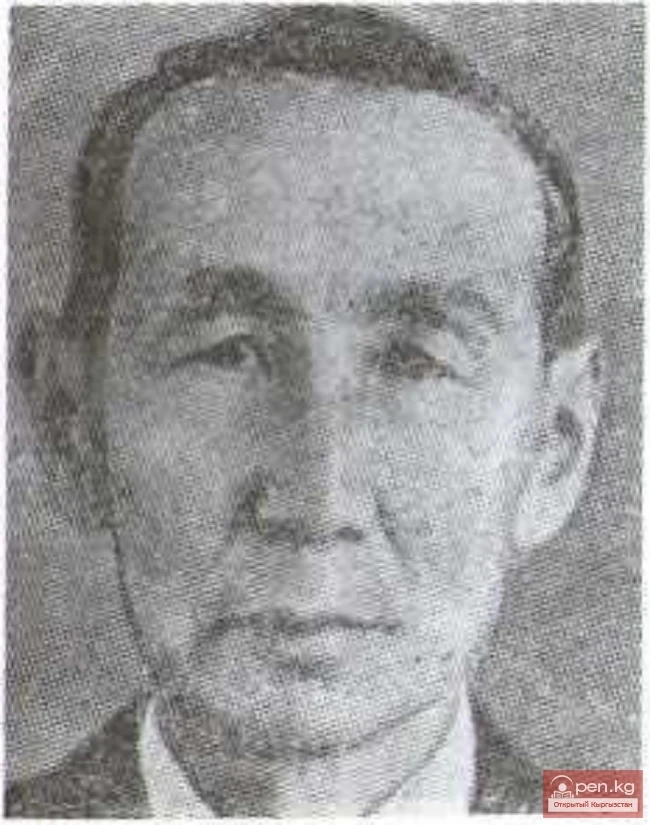
Prose Writer Kasymaly Bayalinov
Prose writer K. Bayalynov was born on September 25, 1902—September 3, 1979, in the Kotmaldy area...
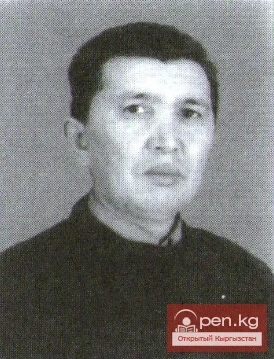
Abdyldaev Baltabay Bapyshievich
Abdyldaev Baltabay Bapyshievich Painter. Born on May 13, 1962, in the Talas region....
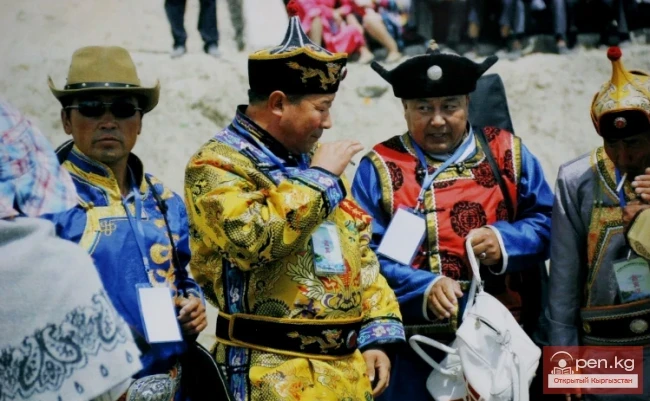
Kyrgyz Diaspora in China
Kyrgyz in China The Kyrgyz in the People's Republic of China are mainly settled in the...
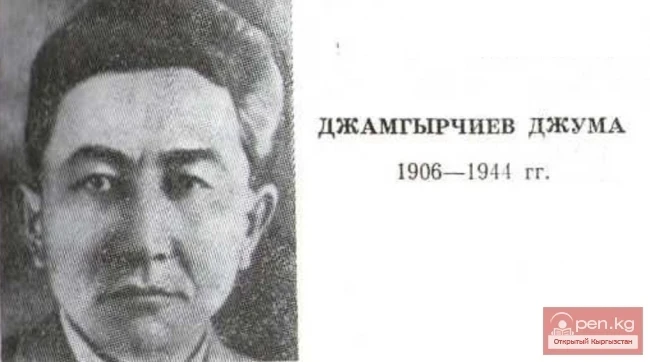
Poet Djuma Jamgyrchiev
Poet Dzh. Jamgyrchiev was born in the village of Kok-Sai in the present-day Ton district of the...

Solidarity
Best Solidarity A year after their wedding, the husband went on a business trip. Delayed, he...
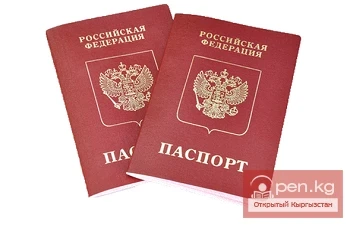
Siamese twin from Kyrgyzstan became a citizen of the Russian Federation
Gita Rezakhanova, one of the separated Siamese twins, and her mother Zumriyat Rezakhanova received...
Life in the Regions: 47 Years as a Teacher and No Change — Natalia Solonitsyna from Kara-Balta Shared the Secret of Youth
Natalia Solonitsyna from the city of Kara-Balta has been working as a teacher for 47 years. In a...
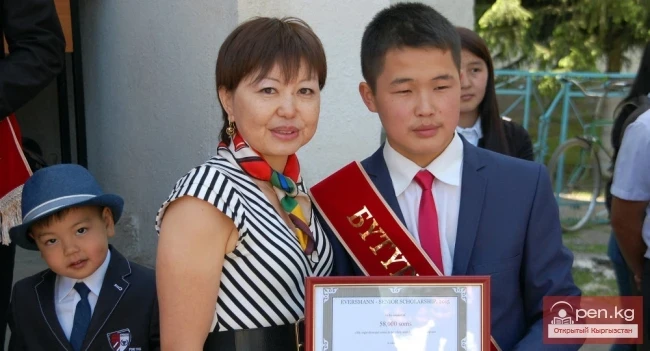
The Chain of Good Returned to Kyrgyzstan 20 Years Later
Kyrgyzstan native Mirgul Omurzakova established a scholarship for students at the school she...
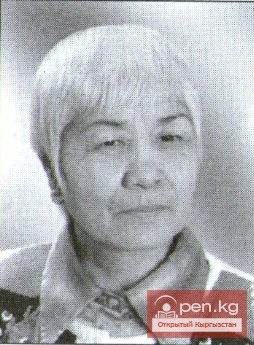
Mambetalieva Orazgan Asanalievna
Mambetalieva Orazgan Asanalievna Biography. Born on December 23, 1946, in the village of...
15-year-old girl left home and stopped communicating: Police found her
In the Issyk-Kul region, the police officers of the Ak-Suu district successfully located a...

Kyrgyzstan — China
On December 27, 1991, the Government of the People's Republic of China recognized the...
Illegal fishing nets were dismantled in the waters of Issyk-Kul
From October 20 to 21, specialists from the Regional Department for Environmental Protection and...
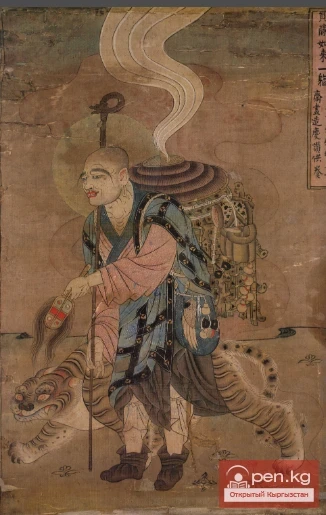
The Legend of the Journey of Xuánzàng
THE JOURNEY OF XUANZANG In the early 7th century, one of the remarkable travelers of the Middle...

Toilets Installed Around Lake Issyk-Kul. Previously Used During the Nomad Games (Photo)
The tourism department announced who will be in charge of maintaining order in the restrooms The...
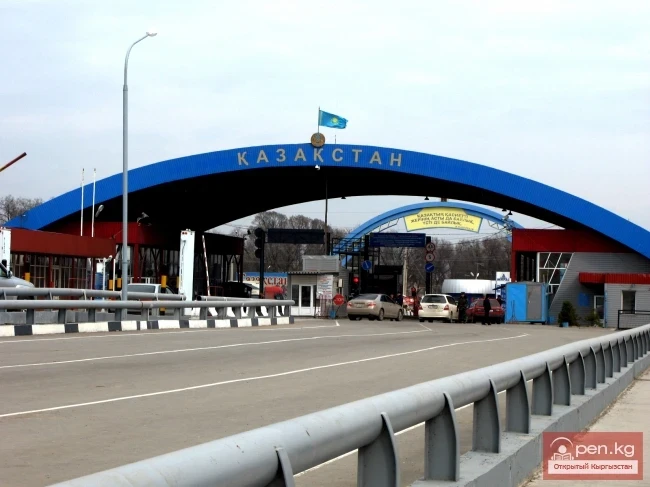
Kyrgyz-Kazakh Border
The administrative-territorial demarcation of the republics of the former USSR predetermined the...
Visiting a Wealthy Woman Who Kept Dozens of Bulls, Relatives Came. They Were Later Found Dead — What Happened 16 Years Ago in Tokmok, Explained by the Investigator
In anticipation of the celebration of Kyrgyz Police Day, which is observed on November 1, Turmush...
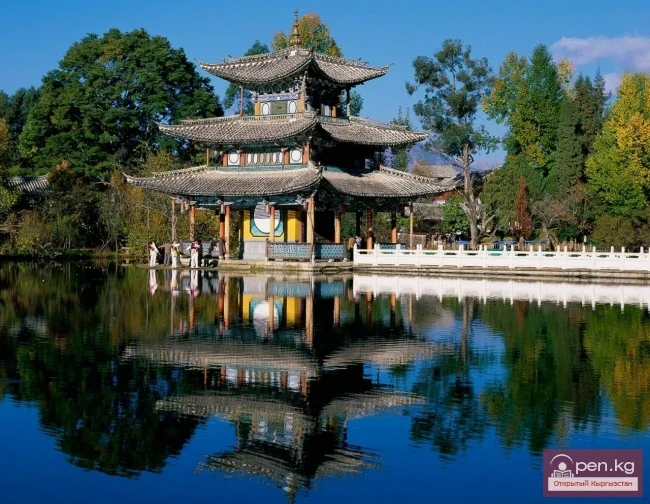
China (Xinjiang Uygur Autonomous Region of the People's Republic of China)
China is a vast country rich in tourist resources. The country is abundant in attractions and...

A Photographer from Holland Published Photos of Unique Places on the Southern Shore of Lake Issyk-Kul
Albert Dros — "I recently discovered Kyrgyzstan" Photographer from the Netherlands —...
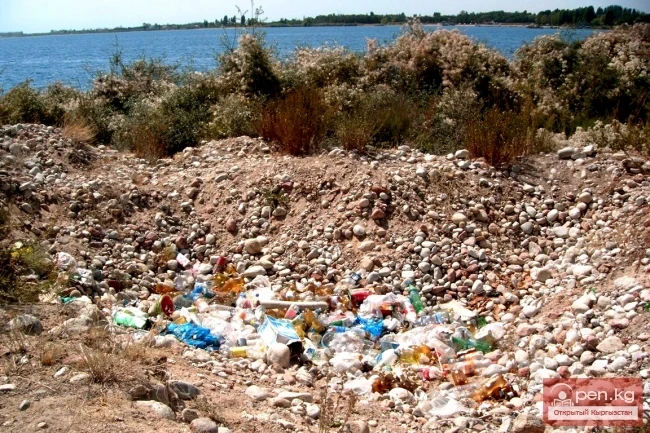
Land Pollution
Pollution, in a broad sense, is understood as the introduction of new (usually non-characteristic...